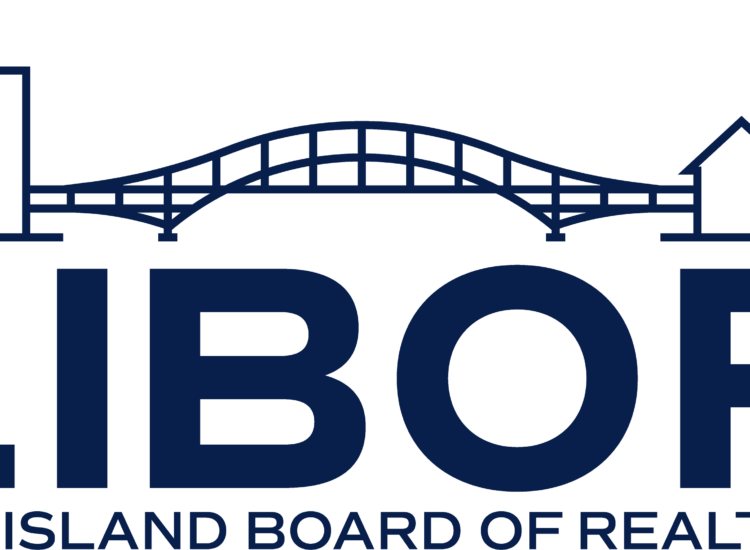Becoming a property agent can be an incredible venture for personal and financial growth, particularly if you are passionate about homes, real estate, and people. With the potential to earn a lucrative income paired with the excitement of the constantly changing industry, a career in real estate may be the perfect fit for you.
Toc
- 1. Understanding the Responsibilities of a Property Agent
- 2. Acquiring the Necessary Qualifications
- 3. Developing Essential Skills for Property Agents
- 4. Building a Strong Knowledge Base
- 5. Marketing Yourself as a Property Agent
- 6. Providing Exceptional Client Service
- 7. Mastering the Property Transaction Process
- 8. Continuing Education and Professional Development
If you are eager to carve out a niche for yourself in the competitive world of real estate, this comprehensive guide is designed to take you through the various steps, requirements, and skills you need to develop to start your career as a successful property agent. Whether you’re a first-time homebuyer who has fallen in love with the art of property transactions or an ambitious individual aiming to capitalize on the dynamic real estate market, this guide is your blueprint to professional excellence in the world of real estate.
Understanding the Responsibilities of a Property Agent

Before embarking on this rewarding career path, it is crucial to understand what being a property agent entails. At its core, the role of a property agent involves facilitating the buying, selling, and renting of properties for clients. This includes tasks such as market analysis, property listings, conducting viewings, negotiation between buyers and sellers, and dealing with the legal and financial aspects of transactions. A successful agent is not just a salesperson; they are advisors, negotiators, and advocates for their clients. They must possess a deep understanding of the local real estate market, be knowledgeable about property laws and regulations, and have the ability to effectively market properties.
A property agent is a trusted professional who assists clients with the purchase, sale, or lease of properties. The day-to-day responsibilities may vary, but they commonly include:
Representing buyers, sellers, and renters
- Working with buyers a. Assessing buyer needs and preferences b. Searching for suitable properties c. Arranging property viewings and inspections d. Assisting with offers and negotiations e. Guiding buyers through the closing process
- Working with sellers a. Conducting property valuations and comparative market analyses b. Advising on property preparation and staging c. Developing effective marketing strategies d. Coordinating open houses and property showings e. Negotiating offers and facilitating the sale process
- Working with renters a. Understanding renter requirements and budgets b. Searching for appropriate rental properties c. Arranging property viewings and inspections d. Assisting with rental applications and lease agreements e. Facilitating the move-in process and addressing tenant concerns
Providing expert guidance and advice
- Offering insights on local market conditions and trends
- Advising clients on property values and pricing strategies
- Providing guidance on mortgage options and financing
- Recommending trusted professionals (e.g., home inspectors, attorneys)
- Sharing knowledge on property maintenance and improvements
Facilitating property transactions
- Preparing and reviewing contracts and legal documents
- Coordinating with lenders, appraisers, and title companies
- Managing deadlines and ensuring smooth transactions
- Troubleshooting and resolving issues that may arise
- Ensuring compliance with real estate laws and regulations
Staying up-to-date with market trends and regulations
- Regularly researching and analyzing local real estate market data
- Monitoring changes in property laws, zoning regulations, and tax policies
- Staying informed about new developments and infrastructure projects
- Adapting strategies and advice based on evolving market conditions
- Continuously educating oneself through industry resources and training
To fulfill these responsibilities, you must develop a thorough understanding of the local real estate market, possess excellent negotiation skills, and keep abreast of all regulatory and legal guidelines pertaining to property deals.
Acquiring the Necessary Qualifications

To become a property agent, you will need to meet certain educational and licensing requirements. This includes:
Educational Requirements
While a high school diploma serves as the minimum academic requirement for becoming a property agent, numerous individuals in this field opt to pursue additional education by obtaining an associate’s or bachelor’s degree. These degrees are commonly focused on areas such as business or real estate, providing agents with a more comprehensive understanding of the industry and enhancing their professional capabilities.
Licensing and Certification
Licensing is a crucial step in every state, essential for professionals to legally practice in their respective fields. The prerequisites for obtaining a license can vary depending on the state. Typically, individuals are required to complete pre-licensing courses to acquire fundamental knowledge, pass a comprehensive state-administered exam to demonstrate competency, and fulfill continuing education requirements to stay updated in their field of expertise. By adhering to these processes, professionals can ensure they are well-equipped and compliant with the regulations set by their state.
Joining a Reputable Brokerage
Newly licensed property agents, eager to kickstart their careers, frequently pursue opportunities for employment within a brokerage setting. By joining a reputable brokerage, individuals can benefit from structured training programs, personalized mentorship from seasoned professionals, and access to a wide array of resources. These foundational elements play a crucial role in nurturing and developing a successful career in the real estate industry.
Developing Essential Skills for Property Agents

To become a successful property agent, one must excel in various key areas that encompass exceptional interpersonal skills for effective client communication, in-depth knowledge of the real estate market trends, strategic marketing techniques to showcase properties effectively, negotiation skills to secure favorable deals, and a keen eye for detail to provide top-notch service to clients.
Communication and Interpersonal Skills
Successful property agents excel in communication skills by actively listening, articulating thoughts clearly and confidently, and fostering robust relationships with their clients. Effective communication forms the cornerstone of their ability to understand clients’ needs, provide tailored solutions, and build lasting trust in the competitive real estate market.
Negotiation and Persuasion Techniques
Your adept negotiation skills, geared towards securing favorable outcomes for your clients, are paramount for success. By thoroughly understanding the motivations of all stakeholders in the negotiation process, invaluable insights can be gained to facilitate mutually beneficial agreements.
Organization and Time Management
With multiple clients and properties, juggling tasks is part of the job. Strong organizational skills will help you manage your time effectively and prioritize tasks efficiently.
Adaptability and Problem-Solving
The real estate market can be unpredictable. Being adaptable and resourceful will help you overcome challenges and find creative solutions.
Attention to Detail
In real estate, the devil is often in the details. Missing a crucial point in the fine print could jeopardize a deal and your reputation.
Building a Strong Knowledge Base

A comprehensive understanding of the real estate market is indispensable for success:
To excel as a property agent, immersing yourself in the real estate market and continuously building your knowledge base is essential. This entails being well-versed in market dynamics, understanding property values, and being aware of the latest trends affecting both local and global markets. Continuous learning can come from various sources:
- Regularly Reviewing Market Reports and Analyses: Keeping up-to-date with the latest market trends and predictions by reading industry reports and attending webinars or conferences.
- Networking with Industry Professionals: Establishing a strong network of contacts within the real estate industry, including other agents, brokers, lenders, and lawyers, can provide invaluable insights and opportunities for collaboration.
- Participating in Continuing Education: Many real estate associations and institutions offer courses that can help you stay current with the legal, technological, and procedural developments in the industry.
- Leveraging Technology: Utilizing real estate software and tools can streamline processes, from client management to market analysis, increasing your efficiency and effectiveness.
By continuously enhancing your understanding of the market and staying ahead of industry developments, you position yourself as a knowledgeable and trusted advisor to your clients, helping you to build a successful career in real estate.
Understanding Local Real Estate Markets
Familiarize yourself with the nuances of residential, commercial, and rental properties in your area.
Property Laws and Regulations
Understanding local and national property laws will help you protect your clients and navigate deals with confidence.
Staying Informed About Industry Trends
Keeping an eye on current trends and best practices will ensure that you remain a competitive and sought-after property agent.
Marketing Yourself as a Property Agent

In the competitive world of real estate, self-promotion is key to attracting clients:
Developing a robust personal brand and a comprehensive marketing strategy is crucial. In a digital age, your online presence can significantly impact your ability to attract and retain clients. Consider the following strategies to enhance your visibility and reputation:
- Creating a Professional Website: Your website should showcase your listings, share customer testimonials, and provide valuable content that positions you as an expert in your field.
- Leveraging Social Media: Platforms like LinkedIn, Instagram, and Facebook offer powerful tools to engage with potential clients, share market insights, and highlight your successes.
- Networking: Attend industry events, join local business groups, and participate in community activities to build relationships. Often, a strong network can generate referrals and lead to new opportunities.
- Content Marketing: Regularly publishing articles, blogs, or videos about the real estate market can help attract attention to your services by providing value to both current and prospective clients.
- Customer Service Excellence: Ultimately, your reputation will hinge on the satisfaction of your clients. Providing exceptional service, communicating effectively, and demonstrating your commitment to their interests will encourage positive reviews and referrals.
By employing these strategies, you can build a strong personal brand that resonates with your target audience, setting the foundation for a successful and enduring career in real estate.
Creating a Personal Brand
Develop a unique value proposition that sets you apart. Establish a professional online presence with a website and social media accounts.
Networking and Building Relationships
Connect with potential clients and industry professionals through networking events and collaborations.
Utilizing Digital Marketing Strategies
Leverage the power of the internet through social media, email campaigns, and content marketing to showcase your expertise and listings.
Implementing Traditional Marketing Techniques
In combination with digital efforts, traditional marketing methods like print media and direct mail can also be effective.
Providing Exceptional Client Service

Happy clients are your best advertising. Provide an exceptional service by:
Understanding and Prioritizing Client Needs
Every client is different. Understanding their unique needs is the first step to providing a tailored service.
Maintaining Open and Transparent Communication
Keep your clients informed at every stage of the process. Transparency builds trust.
Going Above and Beyond
Exceed expectations to ensure that your clients feel valued and satisfied.
Building Long-Term Relationships
Aim not just for one-off sales, but for clients who will return to you for all their real estate needs and who will refer you to others.
Mastering the Property Transaction Process

To be an effective property agent, you must understand and excel in all phases of a transaction:
Listing Properties Effectively
Your skills in evaluating, pricing, and marketing properties will directly impact your success.
Showing Properties and Hosting Open Houses
First impressions are crucial. Learn how to present properties in the best possible light.
Negotiating Offers and Closing Deals
Skillful negotiation is where you truly add value. Closing deals efficiently and professionally will leave all parties satisfied.
Managing Paperwork and Administrative Tasks
Attention to detail is vital when handling the paperwork required in property transactions.
Continuing Education and Professional Development

The most proficient real estate agents grasp the significance of ongoing learning and professional growth. By keeping abreast of market trends, honing negotiation skills, and investigating innovative marketing strategies, they guarantee the delivery of excellent service to their clientele.
Staying Updated on Industry Changes
The real estate industry is in constant flux. Staying informed will help you adapt and excel.
Leveraging Client Feedback for Growth
Listening to your clients’ feedback is a powerful tool for improving your services and overall client satisfaction. Active solicitation of feedback post-transaction, through surveys or direct communication, can provide vital insights into what you are doing well and areas where you can improve. Make it a point to act on this feedback, enhancing your processes to better meet the needs of future clients. This practice not only helps in refining your service quality but also demonstrates to clients that you value their opinion and are committed to continuous improvement. By effectively leveraging client feedback, you establish a cycle of positive growth that can lead to more successful transactions and a stronger reputation in the real estate market.
Pursuing Additional Certifications and Designations
Specialized certifications can enhance your expertise and credibility.
In addition to formal certifications and continued education, participating in webinars, online courses, and workshops related to real estate and market trends is an excellent way to stay ahead. These platforms offer invaluable insights into emerging technologies, innovative marketing strategies, and the latest in industry regulations, enabling you to provide top-tier advice and services. Furthermore, engaging with a mentor or joining a real estate coaching program can provide personalized guidance and support, helping you to tackle challenges and seize opportunities more effectively. By dedicating yourself to ongoing learning and development, you ensure that your skills remain sharp and your knowledge base expansive, making you an indispensable resource to your clients and a standout professional in the competitive real estate landscape.
Attending Workshops and Training
Continuous education and training opportunities will only sharpen your skills and provide a competitive edge.
Learning from Experienced Mentors
Experienced colleagues can offer invaluable insights and advice.
By following this comprehensive guide and embodying the various skills, knowledge, and diligence required, you set yourself up for a rewarding and successful career as a property agent. The real estate market is vast and full of opportunities for agents who are willing to work hard, stay educated, and put their clients’ best interests first. Remember, in this industry, your reputation is everything — nurture it with care, and it will lead you to professional heights you never imagined possible.






